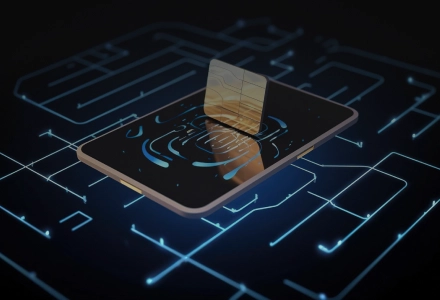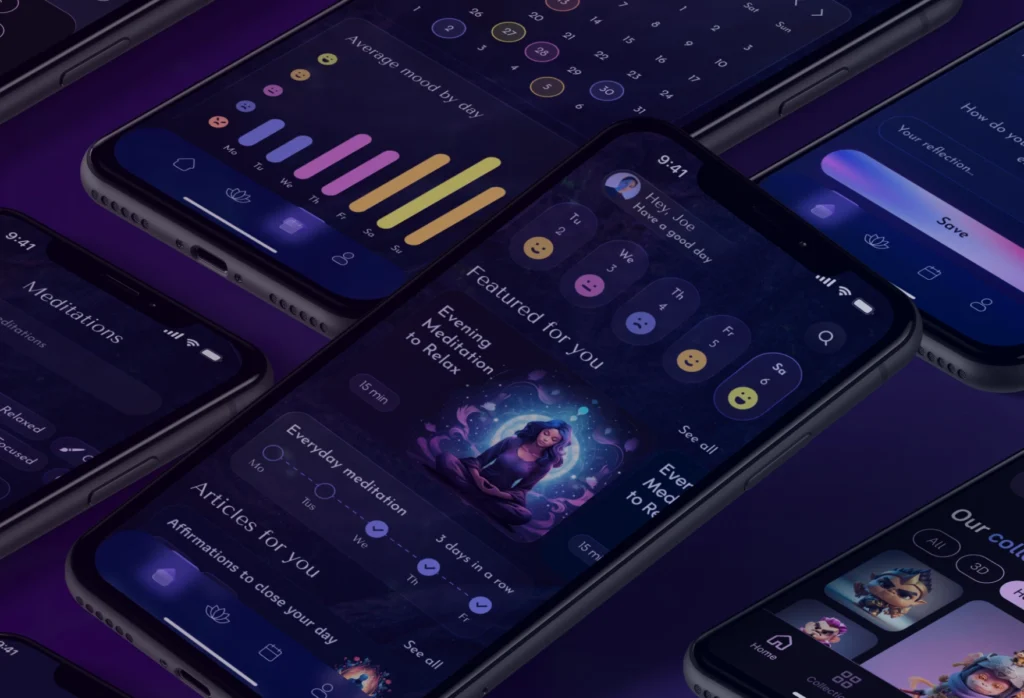July 4, 2022
Mental Health App Development Overview: Types, Cost, Strategies
Everyone now wants to relieve stress more than ever before. A massive influx of unpleasant events that we all experienced during the last few years pushes the state of mental well-being of any healthy human being to the edge. As a result of COVID-19, restrictions and many other issues significantly increased stress levels in people all across the world and caused many mental health issues.
During these challenging times, mental health app development has gained exceptional relevance, offering a valuable resource for countless people seeking support while navigating the isolating effects of self-isolation.
Most businesses, private clinics, and startups understood that the number of issues would only grow over time and decided to deliver custom mental health applications and services. Even though these apps will never replace psychologists, they still deliver value for those in need of help. In addition, this niche is in high demand now, so these companies are able to grow their revenue and attract various customers.
Only in 2020, global consumer spending for mental health and wellness applications reached almost 270 million U.S. dollars, which is 32.5 percent more compared to the 2019 year. Researchers suggested that by the end of 2022, mobile mental and wellness apps would generate 491 million U.S. dollars in consumer spending, which is up by 82.5 percent more than in 2020.
However, the mental health industry is complex and requires knowledge to deliver quality products compliant with requirements and guidelines. Since mental health app development should be done with extreme caution and precision, this guide will help you learn the market positioning of such products, their development aspects, what to expect, and how to enter the market successfully.
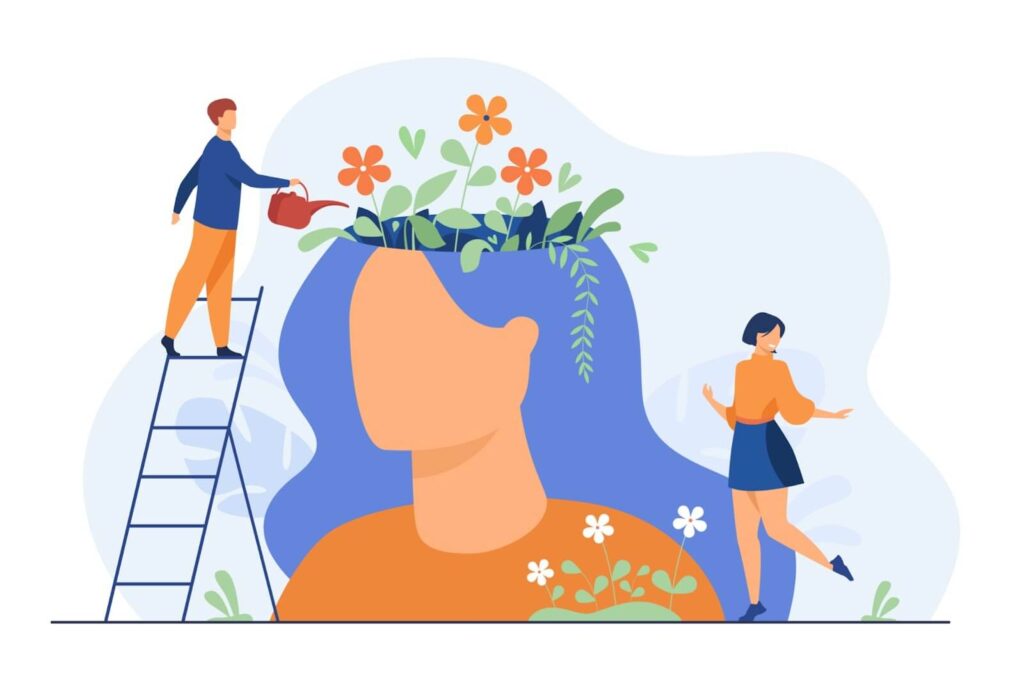
Table of content
What is a Mental Health App?
As the name implies, mental health application is software focused on assisting, solving, supporting, and easing mental health issues in people. The goal of the product varies from app to app and hugely depends on the founder, expertise, and legal aspects of the development process.
Some applications may be developed only to provide advice and tips on improving overall wellness and mental health, while others deliver qualified psychologist help through video calls with experts. Every app has rules and criteria that should be followed, but those providing professional psychologist help should be developed with extra caution.
Let’s see what facts say about the use of mental health apps to help you figure out is it worth investing in such products:
- Statistics show that over 10 million adults in the U.S. have an unmet need to treat their mental health;
- 70% of the worldwide nation of youths now urgently needs treatment for depression;
- Researchers found out that there has been an increase of 4.35% within the last six years in the intensity of major depression.
In reality, everyone who constantly experiences stress, tension, racing thoughts, depression, or any other more severe mental health issues requires help. And since it could be hard sometimes to get this qualified help offline, mental health applications can become a convenient, affordable, and demanding solution. Mental health app development revenue is expected to grow by 23.7% between 2019 to 2027.
Types of Mental Health Apps
Wellness App (General)
Wellness applications are the simplest app that you can build to help people who struggle with minor issues. They can bring various features, like advice on how to improve overall well-being, time trackers for better productivity, and tips for healthier sleep. They can also work as a habit tracker and allow users to connect with others who are in the same situation, like during restrictions, not to lose communication which is essential for mental health.
Mental Disorders
There is a large number of severe and minor mental health disorders like depression, anxiety, obsessive-compulsive disorder, PTSD, bipolar, schizophrenia, and more. Digital products can help those patients to support their mental health. It is worth noting that these applications should not be developed or used for treating these disorders as they require qualified psychologists’ help. However, they can be used as a tool for symptom mitigation, self-care, a reminder to take medications, early detection of exacerbation stages, etc.
Addiction Recovery
These applications are probably most challenging as they require you to hire a professional doctor to help in the development process. They might work as a help for those who are addicted and want to quit, but is it better to focus on help after addiction has been quitted and work as a handy assistant. Along with the most common features for mental health software, you can add several unique ones depending on your target audience.
Eating Disorder
Eating disorders are an urgent problem in modern society. They can be minor or severe, but both lead to many problems in patients’ lives. However, treating or easing symptoms of eating disorders is challenging since it should directly affect physical health while also treated as a mental condition as well. Here you should also hire an experienced professional in this field to assist you in the development process.
Self-Development
Finally, the last among our top mental health app ideas is self-improvement software. These applications are designed to help users reach their personal goals in a convenient way. They may contain all features of any regular mental/wellness app and be boosted by custom ones if you want to deliver a unique value to the target audience. The goal of these apps can be various, but most commonly, it is focused on increasing patience, improving concentration, building self-confidence, overcoming fears, and many others.
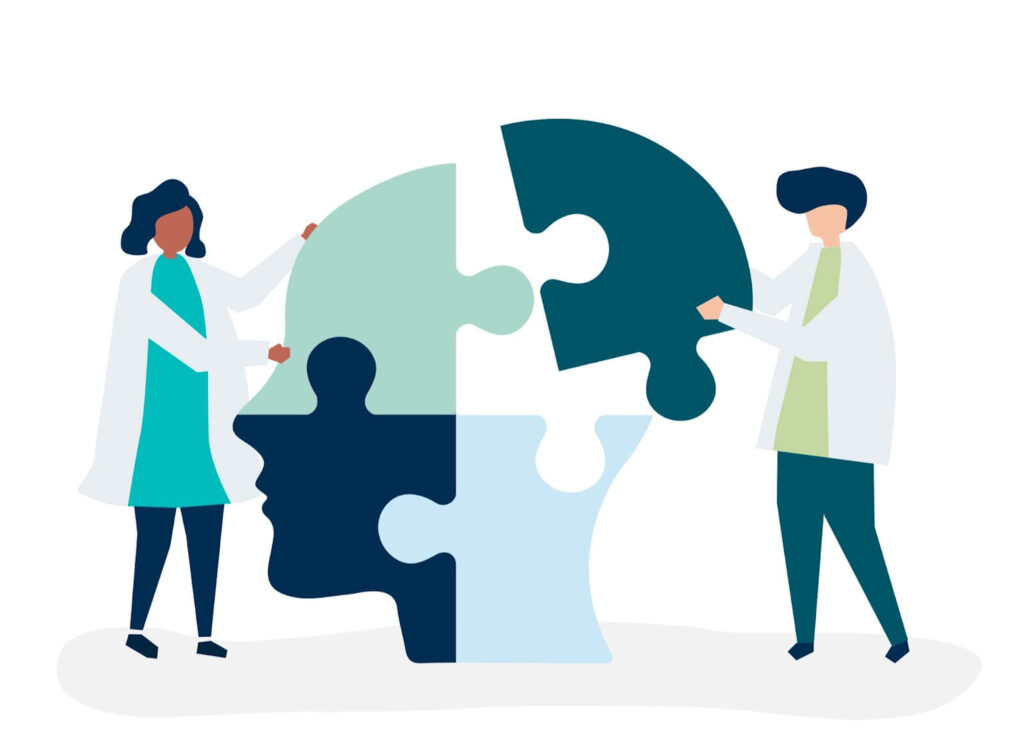
Must-Have Features of Mental Health App
User Profile
While a user profile is an obvious feature, it is not as simple as you may think. Since mental health applications are designed for those who need a safe space and confidence, the user profile should feel personal and cozy. Therefore, it is vital to make the design and the authorization as simple as possible with no extra options that can be confusing. Here you should also ask users some questions to build a base of their details, like:
- What is the time they wake up and go to bed?
- How do they feel now?
- How can they describe their emotional state now?
- What mostly affects their mental health?
- What is their level of psychical activity?
Push Notifications
Push notifications and reminders work both for you and your users. From your side, it makes it easier to keep users engaged and boost retention rates. While for users, notifications can help them stay informed about the latest changes and remind them to take medications or when it is time to sleep or drink water.
Dashboard
People are now absolutely obsessed with quantifying themselves, and mental health is not an exception. But in reality, dashboards can be a really helpful tool for tracking our cognitive, emotional, and similar conditions.
Self-Monitoring
Long before dashboards have become a must-have for most users, self-monitoring through tracking conditions has also been a great option. This may provide an engaging experience and peace of mind, help users to track their journey to success, and more.
Messages
In case when you develop a mental health app that provides an ability to get professional psychologist help, messages can be a go-to option. Even though video and audio call with doctors, sometimes they can be more convenient and easy for patients who struggle with some kind of mental health disorder. In addition, messaging can help patients in self-improvement in the long term and assist them when the situation is getting worse.
Audio and Video Calls
Like messaging, audio and video calls are used mainly for telehealth app development. Even though there are many things that you can consider there, the most vital is to make sure the calls are smooth.
What is HIPAA Compliance?
The Health Insurance Portability and Accountability Act (HIPAA) that was applied in 1996, represents a series of regulatory standards that outline the legal use and disclosure of protected health information (PHI). HIPAA compliance is essential for any healthcare or mental health application regulated by the Department of Health and Human Services (HHS) as well as enforced by the Office for Civil Rights (OCR).
By following a series of interlocking regulatory rules, HIPAA compliance is a must-have for any healthcare organization designed specially to protect the privacy, security, and integrity of medical and health information of patients. Learn more about this regulation here.
How to Develop a Mental Health App?
1. Choose Your Target Audience and Platform
Before starting the development process, you must focus on your target audience. To identify whether your users will be seniors, adults, or teenagers, you should perform market research. This will impact the design and development. It will also affect what platforms you can choose.
2. List Must-Have Features and Run Rapid Prototyping
When you wonder how to create a mental health app, the first step should be listing core features and running rapid prototyping to verify your idea. Building a prototype not only can help you save approximately 10x the cost as compared to starting the development but can also significantly reduce the time needed to develop the final product.
3. Develop Both Sides – For Patients & Doctors
This stage is time-consuming and requires lots of resources. This is why it is recommended to follow the Agile principles and perform interim tests after each iteration. These things you may consider depending on the type of app you are going to build:
- Use third-party HIPAA compliant audio/video calling SDKs;
- Add other off-the-shelf components, such as chats, for better delivery;
- Connect the DevOps pipeline to free time for developers that they can spend on more vital tasks;
- Use cybersecurity best practices to ensure HIPAA compliance
4. Run Tests
As we’ve mentioned above, testing is an essential part of any mental health app development. However, this stage covers much more effort than most can imagine. Therefore, make sure your app has got through the following:
- Functional testing
- Performance testing
- Unit testing
- Stress testing
5. Launch and Maintain
Once your product is done and tested, it’s ready to be tried by first users. However, it is vital to always collect feedback and make improvements every time users leave them. You should always remember to update your app and track its performance.
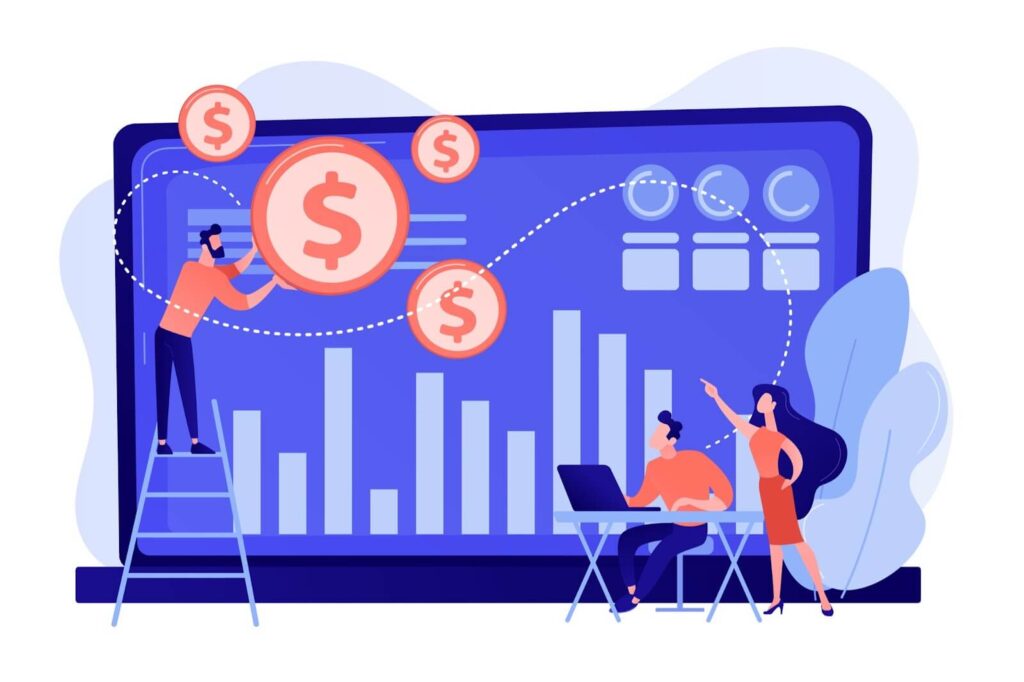
Monetization Strategies for Mental Health App Development
Freemium
Freemium is one of the most popular ways to monetize mental health apps. Freemium is the combination of free and premium words, meaning that you offer two options for the app. One is free and contains basic functionality, while the second one is paid and contains premium features.
Certified Content
This option is perfect for apps that offer certified content that is valuable for care providers’ practice rather than features. You can provide regular content both for doctors and patients, but then they will need to subscribe to see more.
Registration Fees
If your mental health app is designed to somehow connect physicians and patients, then you can charge registration fees for healthcare providers who use it to fill in their free time slots.
Mental Health App Development Cost
Even though there is no simple or accurate answer for everyone, some factors may either reduce or increase the cost. They include:
- The complexity of an app;
- Location and type of the development team;
- Extra features, like ML and A.I.;
- Integrations;
- The expertise of the development company.
When taking an average mental health application, the cost will be somewhere between $70k – $150k. The type of app will also affect the final price. However, the best way to reduce the cost and still get quality products is to hire an outsourced development team that offers fitness app development services.
How Can Interexy Help?
Being founded in 2017, Interexy is one of the leading development companies in the healthcare space. With a large portfolio of mental and medical applications, we pride ourselves on having one of the strongest development teams with in-depth expertise in HIPAA compliance and other vital regulations. Check our healthcare app development services.
We’ve been working on many projects, where one of our favorites is a Do Happy® happiness app. The key goal was to develop a well-thought-out application that would encourage people all across the world to both start and continue doing small tasks to improve their mental health, mood and overall well-being on a regular basis. The end product had to work as a habit tracker with many features, which allows busy people of all ages to easily lead a healthier, happier lifestyle.
The app is launched, and now users perform the daily task and then submit a description and one photo of what they achieved or did. All tasks are memorialized on their profile page, where the blue star appears in their accountability calendar to help them easily track their progress. We’ve also added an accountability calendar that tracks the user’s daily journaling on specific happiness topics and all vital dates that users input into their important people organizer, which helps in improving relationships with their loved ones.

The client’s team left positive feedback about our work and continues with app marketing:
“We are very happy with the current functionalities of the app and feel a lot of thought and care have gone into the app’s development. It is amazing to see how our ideas have come to life. Overall, Interexy has created an intuitive, aesthetically pleasing, and highly functional app that we are very proud of. “
As a leading telehealth app development company, we have extensive experience in the healthcare domain. Our custom telehealth app solutions allow clients to deliver effective, improved and secure care while also being compliant with strict industry’s standards like HIPAA regulation.
Final Thoughts
Mental health awareness is growing rapidly. Modern people constantly struggle with stress, anxiety, tension, and more severe health issues. Therefore, the market and demand grow, allowing businesses to succeed in this field with custom mental health apps. If you want to learn more about our process or share your idea, let’s book a free call.
FAQs
How much does it cost to develop a mental health app?
There is no correct answer for everyone. However, the minimal price with an average app usually starts from $70k.
Key monetization strategies for mental health app development
There are many ways you can monetize your mental health app. The most popular ones are the freemium model, subscription/registration fee, and certified content.
What should mental health apps have?
Besides core features, every mental health app should be HIPAA compliant.
How to choose a reliable partner for mental health app development?
To choose the right healthcare app development company, consider the following:
Experience: Look for a portfolio with relevant projects.
Customization: They should adapt to your unique needs.
Technical expertise: Ensure they handle complex requirements.
Collaboration: Effective communication and support.
Reputation: Check reviews and client experiences.
Interexy excels in all these areas, guiding projects from start to finish.









